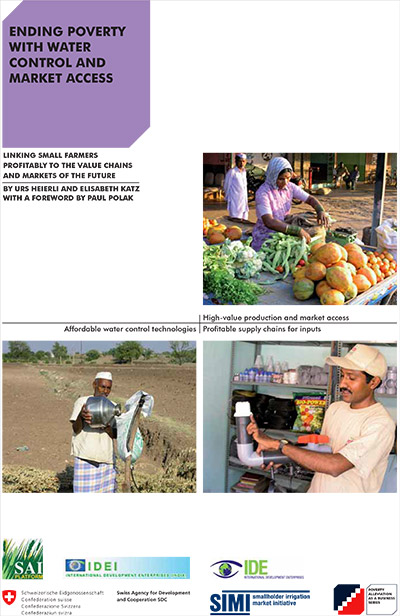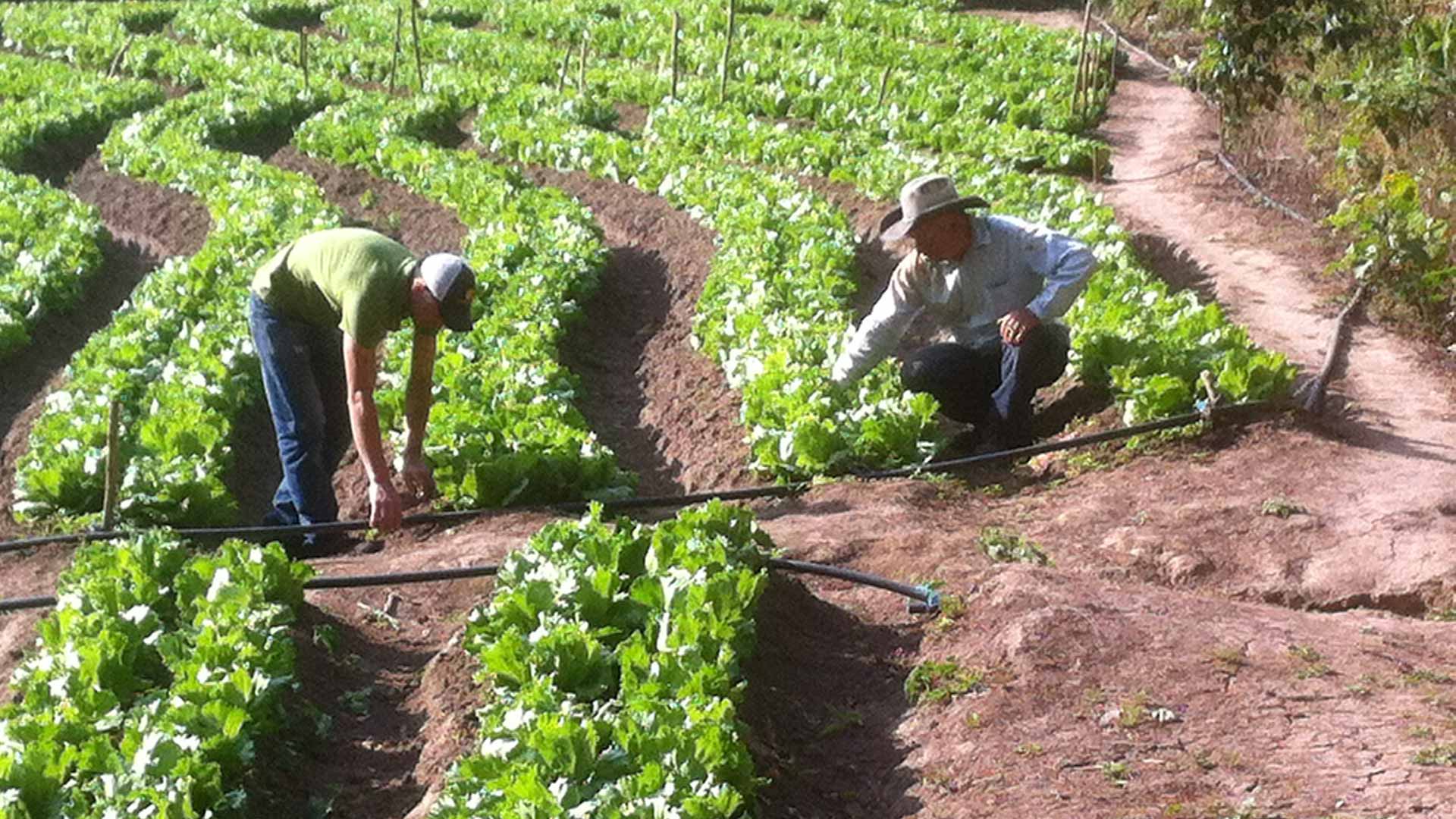Linking Small Farmers to the Value Chains and Markets of the Future
By Urs Heierli and Elisabeth Katz with a foreword by Paul Polak
 Small farmers often have lower production costs but they are still not competitive because their transaction costs are high and they cannot produce what the market wants at the right time. Alongside other inputs such as seeds, they need affordable water control technologies and access to profitable markets. As more and more agricultural goods are sold through supermarkets, they need to deliver the qualities and quantities as and when they are needed. In Nicaragua, the supermarket chain sends a truck every Monday, Wednesday and Friday. It stops at places where farmers will always have at least 20 boxes of tomatoes ready.
Small farmers often have lower production costs but they are still not competitive because their transaction costs are high and they cannot produce what the market wants at the right time. Alongside other inputs such as seeds, they need affordable water control technologies and access to profitable markets. As more and more agricultural goods are sold through supermarkets, they need to deliver the qualities and quantities as and when they are needed. In Nicaragua, the supermarket chain sends a truck every Monday, Wednesday and Friday. It stops at places where farmers will always have at least 20 boxes of tomatoes ready.
Small farmers can be competitive in the market provided that essentially three elements are in place at the same time :
Smallholders have control over water with affordable irrigation, pumping and water storage technologies not only to irrigate but to be able to schedule the harvests of their crops to meet the market demand.
Smallholders have access to affordable water control technologies and other inputs ( seeds, know-how, plant protection, credit ) not as one time donations but delivered through vibrant and sustainable private supply chains.
Smallholders have access to the ever more demanding markets for high-value products. With the fast-growing process of ‘supermarke- tisation’ – also underway in many countries of the South – smallholders may be driven out of business if they fail to access these new marketing channels.
Hardcopies are available (free) from SDC, Swiss Agency for Development and Cooperation, E+I Division.
E-mail: e-i@deza.admin.ch

